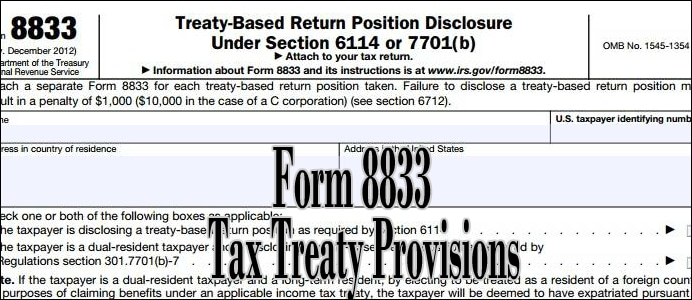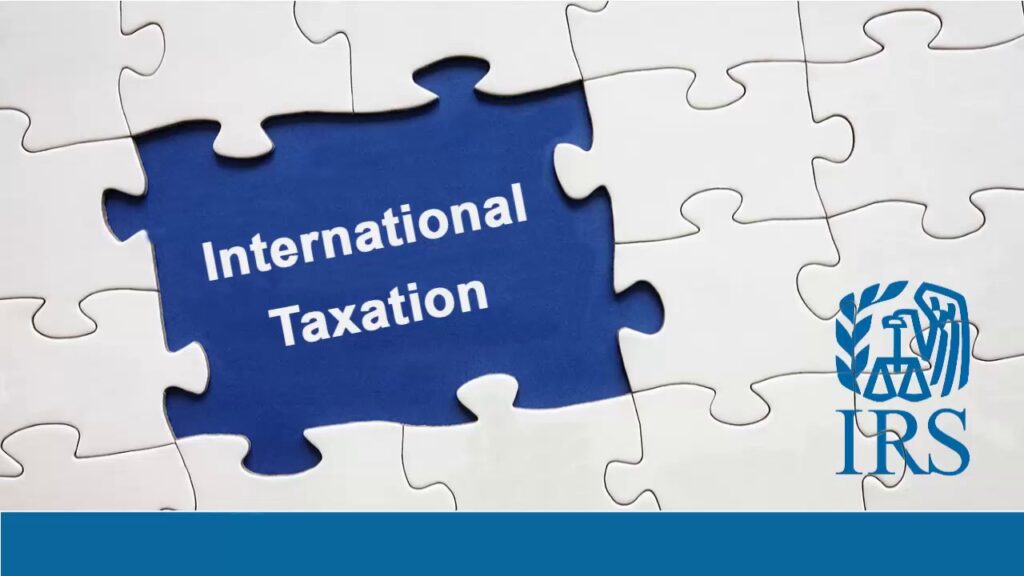

What is a Tax Treaty?
A tax treaty is an agreement between two countries intended to address and resolve issues such as double taxation of income for each country’s citizens or residents. The United States has tax treaties in place with numerous countries. These treaties seek to provide reciprocal reduced tax rates or exemptions for citizens or residents of both countries. The specific rate reductions or exemptions differ with each treaty as does the definition and determination of what types of income qualify for reduction or exemption. Often these tax treaties will include a “Savings Clause.”
The “Savings Clause”
A savings clause, which is included in most tax treaties, prevents a United States citizen or resident from using a treaty to avoid being taxed on income originated in the United Sates. If the treaty does not mention a particular type of income or no treaty exists, then the taxpayer must file tax returns and pay all income tax as required under applicable U.S. federal and state tax law.
Non-Tax Treaty Compliant States
However, some states choose not to conform with federal tax law and do not honor the provisions of federal tax treaties. As such, taxpayers in those states may be required to report and pay state taxes even when a treaty exists.
California is a non-tax treaty compliant state. As a result, a person or entity that pays taxes in California must still pay California state taxes even when their income falls under the provisions of a federal treaty.
How do I Claim Relief Under a Provision in a U.S.? File IRS Form 8833.
Internal Revenue Service Form 8833, Treaty-Based Return Position Disclosure, is required for each taxpayer who takes a position under Section 6114 or 7701(b) of the tax code, that a United States treaty overrides or modifies their obligations under regular Internal Revenue Service rules.
Who Must File and When?
Taxpayers who seek to take treaty-based relief must file an IRS tax return and include IRS Form 8833 for each treaty-based position taken unless a waiver has been granted. In situations where a taxpayer is not required to file a federal tax return, the taxpayer is still required to file a return to make the treaty-based return position disclosure using Form 8833.
What is a Treaty-Based Return Position?
A treaty-based return position occurs when a taxpayer claims that a provision under a U.S. federal treaty modifies or overrides a reporting requirement of the Internal Revenue Code and the modifications results in or may cause a reduction of the taxpayer’s tax obligation.
Penalties
The IRS requires full disclose for each treaty-based exemption. Failure to disclose a treaty-based return position may result in a penalty of $1,000 for an individual or $10,000 for a C corporation.
Conclusion
Understanding the intricacies and rules of tax treaties as well as the Form 8833 reporting requirements is difficult. The International Tax Department at RJS LAW, has qualified attorneys with experience regarding treaty deductions and reporting. Our sophisticated International Tax Department is ready to assist in preparing and reporting Form 8833 as well as assisting those who failed to report. If you have questions, please call for a free consultation and assessment at 619-595-1655 or contact us via the web at www.RJSLawFirm.com. We look forward to hearing from you.
Written by Andrea Cisneros Valdez, Esq., LL.M and Andrew Rice

Leave a Reply